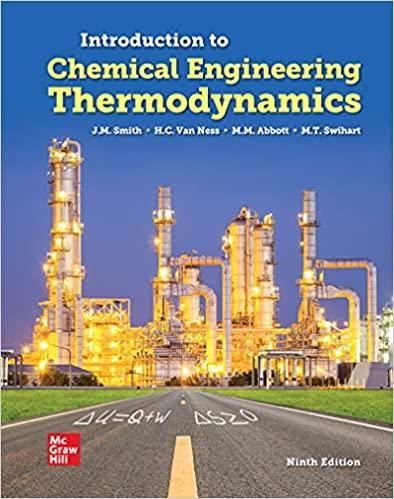Answered step by step
Verified Expert Solution
Question
1 Approved Answer
4 . 6 4 . The gas - phase reaction between methanol and acetic acid to form methyl acetate and water C H 3 O
The gasphase reaction between methanol and acetic acid to form methyl acetate and water
A
B
C
D
takes place in a batch reactor. When the reaction mixture comes to equilibrium, the mole fractions of the four reactive species are related by the reaction equilibrium constant
a Suppose the feed to the reactor consists of and grammoles of and an inert gas, I, respectively. Let be the extent of reaction. Write expressions for the grammoles of each reactive species in the final product, and Then use these expressions and the given equilibrium constant to derive an equation for the equilibrium extent of reaction, in terms of dots,see Example
b If the feed to the reactor contains equimolar quantities of methanol and acetic acid and no other species, calculate the equilibrium fractional conversion.
c It is desired to produce mol of methyl acetate starting with mol of methanol. If the reaction proceeds to equilibrium, how much acetic acid must be fed? What is the composition of the final product?
d Suppose it is important to reduce the concentration of methanol by making its conversion at equilibrium as high as possible, say Again assuming the feed to the reactor contains only methanol and acetic acid and that it is desired to produce mol of methyl acetate, determine the extent of reaction and quantities of methanol and acetic acid that must be fed to the reactor.
e If you wanted to carry out the process of Part b or c commercially, what would you need to know besides the equilibrium composition to determine whether the process would be profitable? List several things.

Step by Step Solution
There are 3 Steps involved in it
Step: 1

Get Instant Access to Expert-Tailored Solutions
See step-by-step solutions with expert insights and AI powered tools for academic success
Step: 2

Step: 3

Ace Your Homework with AI
Get the answers you need in no time with our AI-driven, step-by-step assistance
Get Started


